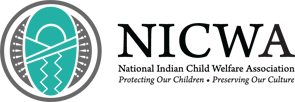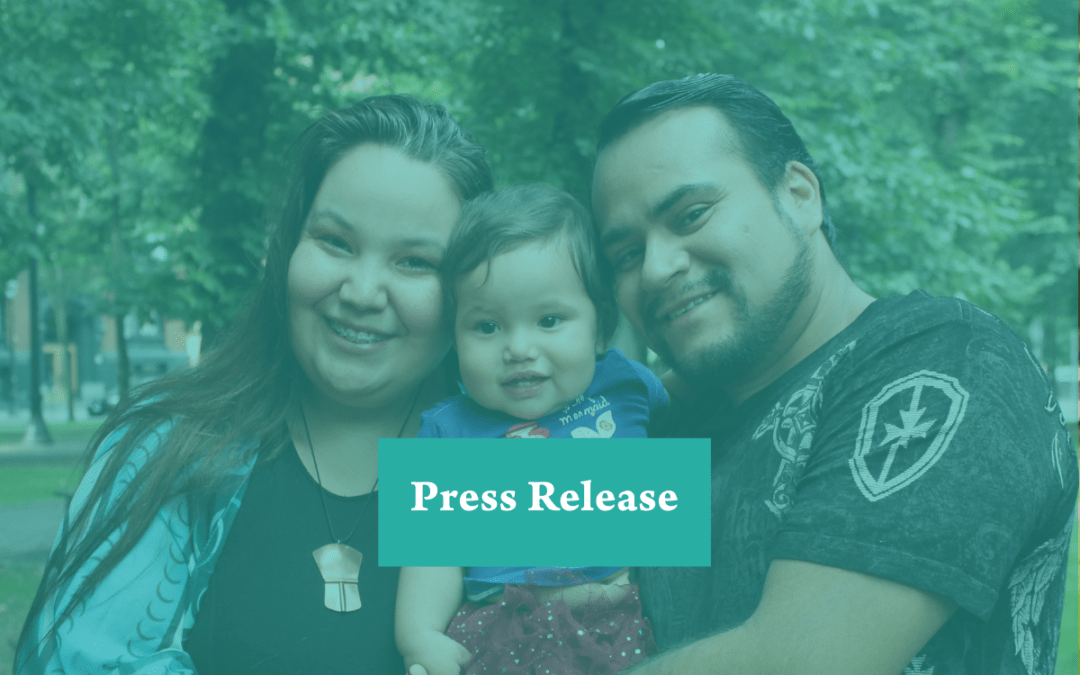Media Contact
media@nicwa.org
(Portland, Ore., September 30, 2021)—The National Indian Child Welfare Association (NICWA) applauds Senator Elizabeth Warren and Representative Sharice Davids for introducing the Truth and Healing Commission on Indian Boarding School Policies Act.
Indigenous peoples and communities in the United States and Canada still suffer from individual and collective unresolved grief and trauma related to the long history of parallel assimilationist policies in our countries. For over 110 years, it was a common practice to forcibly remove Native children from their families and place them in government-funded and/or church-run boarding/residential schools hundreds or thousands of miles away.
The Truth and Healing Commission on Indian Boarding School Policies Act would establish a Truth and Healing Commission on Indian Boarding School Policies in the United States to formally investigate and document Indian boarding school policies and the impacts and ongoing effects of historical and intergenerational trauma in Native communities resulting from them. The Commission would hold public hearings for survivors, victims, families, communities, organizations, and tribal leaders to testify about the impacts of the physical, psychological, and spiritual violence of Indian boarding schools. The Commission would also collaborate with the Department of the Interior (DOI)’s Federal Indian Boarding School Initiative and develop recommendations for the federal government to acknowledge and heal the historical and intergenerational trauma caused by boarding schools.
“This is a much-needed opportunity for the United States to tell the truth about its history with American Indian, Alaska Native, and Native Hawaiian peoples,” said Vice Chairman of the Poarch Creek Indians and NICWA Board Public Policy Committee Chair Robbie McGhee. “The DOI Initiative needs this complementary effort, a funded and staffed Commission, to expand the investigation, documentation, and compilation of records to allow survivors and other victims of the boarding schools have their experiences understood. It is imperative that this Commission develop a more in-depth understanding of the roles of parties, including nonprofits, churches, and state governments who carried out assimilationist policies impacting generations of Native people.”
“The time to acknowledge the impact of historical government policies and practices on Native families and communities through unresolved intergenerational grief and trauma, the loss of parenting practices, and the transmission of adverse childhood experiences is long overdue,” said NICWA Executive Director Sarah Kastelic. “This trauma accrues in individuals, families, and whole communities. The loss of generations of children who went away and never returned, or who came home severely traumatized by their boarding school experience, caused grief not just to their families but wounded their entire communities.”
“NICWA calls on members of Congress to pass this legislation immediately, to begin the landmark work to tell the truth about the treatment of Native peoples and to allow this truth-telling to facilitate an opportunity to heal the unresolved grief and trauma of generations of Native people and hundreds of Native communities,” said NICWA Board President and Executive Director of Eight Northern Indian Pueblos Council, Inc. Gil Vigil. “The Commission must be sufficiently funded to support the investigation of the 367 known Indian boarding schools and others that can be identified. This process can only be successful if we invite and support the participation of the tens of thousands of people who attended these schools and the parties who were involved in funding, operating, and staffing of them.”
# # #
About the National Indian Child Welfare Association
NICWA works to support the safety, health, and spiritual strength of Native children along the broad continuum of their lives. NICWA promotes building tribal capacity to prevent child abuse and neglect through positive systems change at the state, federal, and tribal level. For more information, visit www.nicwa.org.

